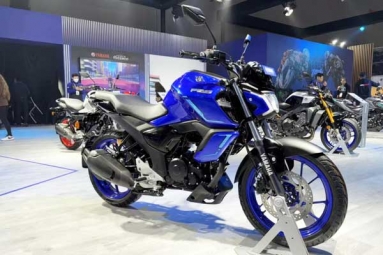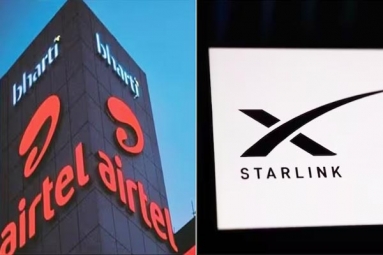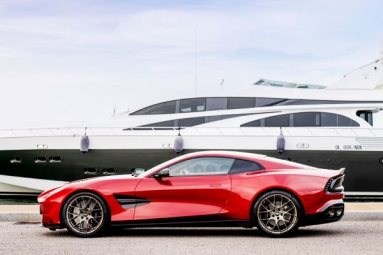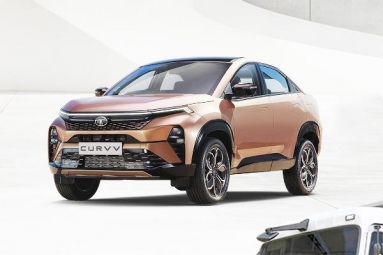Tata Motors may offer Battery-as-a-Service option for Electric Cars
October 08, 2024 08:05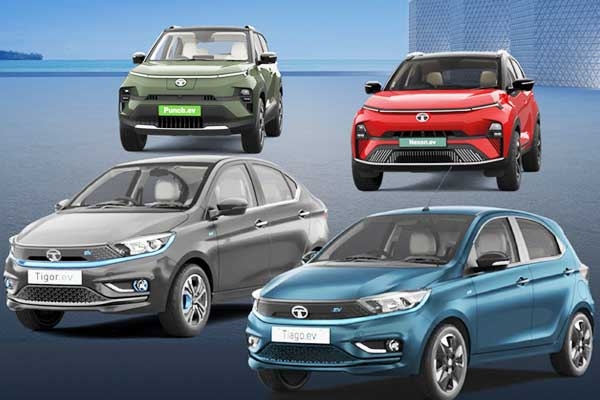
(Image source from: Twitter.com/TataCompanies)
Tata Motors is exploring a Battery-as-a-Service (BaaS) model for some of its electric vehicle (EV) lines, such as the Tiago, Punch, Tigor, and Nexon. This model would allow customers to purchase the EV without the battery, reducing the upfront cost by 25-30%. Instead, customers would pay a rental fee for the battery based on their usage. This could make Tata's EVs more affordable for consumers who are looking for cost-effective electric options. However, the plans are still in the early stages, and Tata will wait for feedback from pilot runs before making a final decision.
Tata Motors has introduced a new offering called the Windsor EV, priced between Rs 13,49,800 and Rs 15,49,800. Customers can buy the Windsor EV for Rs 9.99 lakh (ex-showroom) under the Battery as a Service (BaaS) program, with an additional rental charge of Rs 3.50/km. The company later extended this BaaS option to the Comet EV (starting at Rs 4.99 lakh + battery rental at Rs 2.5/km) and the ZS EV (starting at Rs 13.99 lakh + battery rental at Rs 4.5/km). Tata Motors aims to maintain its current market share of 75-80% in the electric passenger vehicle space. While discounts and free vehicle charging may attract some buyers, the company believes that price parity with internal combustion engine vehicles is the key to attracting more customers. Tata Motors is also considering battery rental options, similar to the approach taken by JSW MG Motor India. Additionally, Tata Motors is selling electric variants of its existing models, including the Tiago.ev (starting at Rs 7.99 lakh), Tigor.ev (starting at Rs 12.49 lakh), Punch.ev (starting at Rs 9.99 lakh), Nexon.ev (starting at Rs 12.49 lakh), and the recently launched Curvv.ev (starting at Rs 17.49 lakh). With the BaaS program, the prices of these models can be reduced by Rs 2-3 lakh.
Tata Motors has been open to testing new ideas and piloting them. They had previously tried the Battery as a Service (BaaS) option around three to four years ago, but found that it was confusing for customers. While the physical battery and vehicle were not separated, the pricing model was creating a financial separation, which customers found difficult to understand. As a result, Tata Motors decided not to proceed with the BaaS option at that time.
The decision to reconsider the BaaS option comes at a time when the overall electric vehicle (EV) market has been experiencing a decline in sales over the past six months. During the first quarter (April-June) of the current fiscal year, Tata Motors' e-PV sales dropped by 14% to 16,579 units, compared to 19,346 units in the same period last year. Similarly, in the second quarter (July-September), their sales declined by 16% to 15,642 units, compared to 18,615 units in the same quarter of the previous fiscal year. In September 2024, Tata Motors' total EV sales (International and Domestic) decreased by 23% to 4,680 units, compared to 6,050 units in the same month of the previous year.
The given text indicates that Q2 FY25 saw a more than 5 percent decline in retail (vehicle registrations) compared to the same period in the previous year, attributed to slow consumer demand and seasonal factors. Electric vehicle sales in the personal segment were affected by the expiration of registration and road tax exemptions in key states. Fleet EV sales continued to be impacted due to the lapse of the FAME II program and the exclusion of the fleet segment from the PM-eDRIVE scheme. Tata Motors has emerged as a dominant player in the Indian EV market. The introduction of the Battery-as-a-Service (BaaS) model presents a game-changing solution, lowering the upfront cost of EV ownership and making these vehicles more accessible to mainstream consumers. In a market like India, where consumer trust in EVs is still developing and word-of-mouth confidence is limited, the BaaS model addresses key concerns about battery technology and provides reassurance to consumers, which is crucial for accelerating EV adoption in the country.



